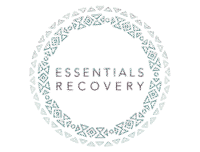Choosing an addiction treatment program is a life-changing decision, and the quality of care someone receives can have a lasting impact on their recovery journey. With so many different programs, philosophies, and providers available today, it’s more important than ever to understand what quality care looks like in the field of addiction treatment. Recovery is not one-size-fits-all, and ensuring that care is not only accessible but also effective requires a thoughtful, informed approach.
Quality care in addiction treatment goes beyond simply offering a bed or running group therapy. It involves a comprehensive strategy that addresses the whole person—their physical health, mental wellness, emotional needs, social connections, and long-term recovery goals. It also means treatment providers must adhere to ethical standards, maintain professional licensure, and deliver services that are evidence-based and client-centered.
Understanding Evidence-Based Treatment Approaches
One of the clearest indicators of quality care is whether a treatment program uses evidence-based practices. These are therapies and interventions that have been rigorously studied and shown to be effective for treating substance use disorders. Cognitive Behavioral Therapy, Motivational Interviewing, Contingency Management, and Medication-Assisted Treatment are just a few examples of approaches that are commonly supported by scientific research.
Programs that rely solely on outdated models, tough love tactics, or rigid one-size-fits-all protocols may not provide the level of care someone truly needs. While peer support and spiritual growth can play meaningful roles in recovery, they are most effective when combined with clinical methods that address the neurological and psychological aspects of addiction.
Treatment centers committed to quality stay up to date on the latest research, train their staff accordingly, and adapt their methods when new, more effective strategies emerge.
Individualized Treatment Planning
Every person struggling with addiction brings a unique set of experiences, challenges, and strengths to treatment. High-quality care recognizes this by developing personalized treatment plans that reflect the individual’s specific needs. This might include addressing co-occurring mental health conditions, past trauma, chronic pain, family dynamics, or housing insecurity.
Rather than forcing each client into the same schedule or treatment path, quality programs conduct thorough assessments at intake and throughout the process. This allows the care team to modify the plan as the individual makes progress, encounters setbacks, or needs a different level of support. A flexible and person-centered approach is often the key to long-term engagement in treatment and sustained recovery.
Qualified, Compassionate Staff
The people who provide treatment are just as important as the methods they use. In a high-quality program, the staff should include licensed professionals such as addiction counselors, social workers, psychologists, physicians, and nurses. These professionals should not only be properly credentialed but also well-trained in addiction-specific care and continuing education.
Compassion, empathy, and professionalism are essential qualities for anyone working in addiction treatment. Clients should feel heard, respected, and supported—not judged, dismissed, or overlooked. The therapeutic relationship plays a major role in the healing process, and the tone set by staff members can influence whether a client stays engaged in care or disengages altogether.
Supervision and oversight are also part of ensuring quality. Clinical teams should be collaborative, with regular meetings to discuss client progress, treatment modifications, and ethical considerations.
Continuity of Care and Aftercare Planning
Addiction is a chronic condition, and treatment is not a one-time event. Effective programs recognize that recovery is an ongoing process that continues long after someone completes residential or outpatient care. Quality care includes planning for what comes next—before the formal treatment period ends.
Discharge planning should start early and involve identifying next steps that match the client’s needs and preferences. This may include outpatient therapy, support groups, sober housing, vocational training, or connections with community resources. Aftercare plans should be realistic and achievable, helping to build a bridge between structured treatment and independent living.
Maintaining a strong recovery network and having a plan for managing stress, triggers, and setbacks can reduce the risk of relapse. Programs that prioritize aftercare are showing a commitment to their clients’ long-term well-being—not just short-term results.
Integrated Mental Health Support
Substance use disorders often go hand-in-hand with mental health conditions such as depression, anxiety, PTSD, or bipolar disorder. In fact, many people begin using substances in an attempt to self-medicate or cope with unresolved trauma. Treating only the addiction without addressing these underlying issues can lead to incomplete recovery or eventual relapse.
Quality addiction treatment includes integrated mental health support. This means clients are screened for co-occurring disorders and provided with appropriate therapy and, if needed, psychiatric care. When mental health is addressed in tandem with addiction, clients are more likely to build the insight and emotional resilience necessary for lasting sobriety.
Dual diagnosis treatment should be delivered by professionals with expertise in both areas. This ensures that care is coordinated, not fragmented, and that progress in one area supports healing in the other.
Safe, Clean, and Supportive Environment
The physical environment of a treatment center can also say a lot about the quality of care provided. Facilities should be clean, safe, and well-maintained. Clients should have access to nutritious meals, comfortable living spaces, and spaces for reflection, recreation, and group activities.
More than just the appearance of the space, the emotional environment matters too. A supportive, inclusive, and respectful culture encourages clients to open up, take risks, and engage fully in the treatment process. Programs should actively work to create an atmosphere free from stigma, discrimination, or punitive practices.
An inclusive environment also means being sensitive to the diverse needs of clients. Gender identity, sexual orientation, cultural background, and religious beliefs should be respected and, where possible, integrated into treatment in meaningful ways.
Ethical Standards and Transparency
One of the unfortunate realities of the addiction treatment industry is that not all programs operate with transparency or integrity. In recent years, there has been increased scrutiny of unethical practices like patient brokering, insurance fraud, and misleading advertising.
High-quality treatment providers are committed to ethical practices. They are transparent about costs, insurance coverage, services offered, and outcomes. They provide clear consent forms, respect client confidentiality, and avoid making unrealistic promises or guarantees.
Reputable programs will also welcome questions and encourage prospective clients and families to tour the facility, meet the staff, and review treatment philosophies before enrolling. The presence of accreditation by national organizations can also be a sign of commitment to quality.
Ongoing Monitoring and Quality Improvement
No program is perfect, but the best ones are always striving to improve. Quality treatment providers regularly evaluate the effectiveness of their services through client feedback, staff input, outcome data, and professional consultation. They use this information to make adjustments, train their staff, and enhance the client experience.
Feedback loops are essential in maintaining high standards. Clients should have opportunities to express concerns or share suggestions during and after treatment. Staff should be encouraged to identify challenges or offer solutions to improve clinical care, logistics, or safety.
Programs that emphasize quality improvement tend to foster a culture of accountability, learning, and growth—traits that directly benefit the people they serve.
Family Involvement and Education
Addiction affects more than just the individual struggling with substance use—it impacts families, partners, and entire support systems. High-quality treatment programs recognize the importance of involving families in the recovery process.
This might include offering family therapy sessions, educational workshops, or support groups specifically for loved ones. Helping families understand addiction as a disease, recognize enabling behaviors, and set healthy boundaries can improve outcomes for everyone involved.
Family involvement should always be guided by the client’s comfort and consent. When done respectfully, it can strengthen communication, rebuild trust, and create a more stable foundation for post-treatment life.
Measuring Success Beyond Abstinence
A final marker of quality in addiction treatment is how success is defined. While abstinence from drugs and alcohol is an important goal, it should not be the only one. Recovery is about more than stopping use—it’s about rebuilding health, restoring relationships, gaining independence, and finding meaning in life again.
Programs that focus solely on sobriety rates may overlook the deeper aspects of healing. Quality care looks at the whole picture: improved mental health, increased self-esteem, job readiness, social connection, and overall life satisfaction. Success is measured not just by whether someone stays clean, but by whether they’re thriving.
Treatment should empower people to live fuller, more connected lives—not just avoid substances.
Final Thoughts
Ensuring quality of care in addiction treatment means looking beyond the surface. It requires asking the right questions, understanding what effective care looks like, and advocating for services that treat people with dignity, professionalism, and compassion. As addiction continues to impact communities across the country, the demand for treatment grows—but so does the responsibility to ensure that care is safe, ethical, evidence-based, and centered on the unique needs of each individual.
For anyone seeking treatment—whether for themselves or a loved one—knowledge is power. By understanding the hallmarks of quality care, you can make informed decisions that support true healing and long-term recovery. Call us today at 855-509-1697.



